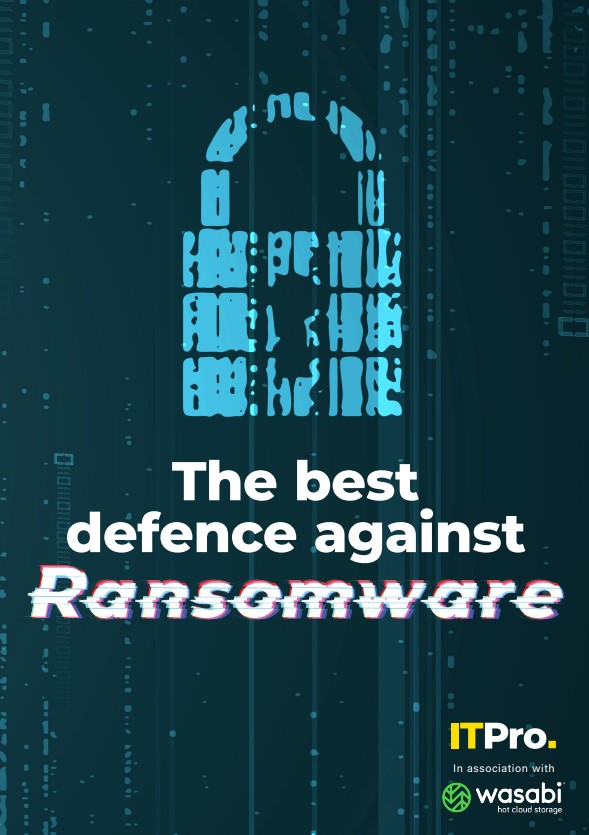Hackers to face 25 years in jail for cyber attacks on Australia's national infrastructure
The proposals aim to update current laws to account for cyber threats like ransomware


Hackers could face up to 25 years in jail if found guilty of cyber offences against Australia’s critical infrastructure, under proposed changes introduced by the government today.
The government tabled the Crimes Legislation Amendment (Ransomware Action Plan) Bill 2022 in a bid to modernise criminal offences and procedures to respond to the threat of ransomware. It has several proposals that update the Criminal Code Act 1995, the Crimes Act 1914, and the Proceeds of Crime Act 2002.
One proposal is to set a maximum jail term of 25 years for hackers who target critical infrastructure assets. The government said it wanted to ensure that any computer offence against Australia’s infrastructure carries an appropriate penalty and deters would-be offenders.
Australian law enforcement will also be given clear legal authority to investigate and prosecute ransomware crimes and offences that occur in foreign countries, where the crime affects a person in Australia. Law enforcement will also be given the power to seize cryptocurrencies and other digital assets associated with cyber crime.
A new offence will also be created for those who buy or sell ransomware, with the government eager to crack down on the ransomware-as-a-service business model in particular.
The bill also makes adjustments to the law governing unauthorised access to, or the modification of, restricted data and unauthorised impairment of data held on a computer disk. In this case the maximum jail term will increase from two years to five years.
“Although a positive step in the fight against cybercriminals, this deterrent will by no means be the end of ransomware in Australia,” said Camellia Chan, CEO and Founder of X-PHY. “It is imperative that organisations do not rest on their laurels despite tougher punishments for criminals. New ransomware gangs and threat actors who are willing to risk the consequences are sure to emerge.
Sign up today and you will receive a free copy of our Future Focus 2025 report - the leading guidance on AI, cybersecurity and other IT challenges as per 700+ senior executives
“Indeed, the devastating attack last year on the Colonial Pipeline in the US proves no organisation is too large to be targeted. Efforts to improve cyber security and bolster defences should be more strong than ever.”
This legislation implements key aspects of the government’s Ransomware Action Plan that was announced on 13 October 2021. The plan set out the government’s strategic approach to tackle the threat posed by ransomware and make it easier to clamp down on cryptocurrency transactions associated with ransomware crimes.
RELATED RESOURCE

The best defence against ransomware
How ransomware is evolving and how to defend against it
Australia’s proposals to update the current legislation may be watched by other nations across the globe, many of which lack formal charges against ransomware.
In the UK, the Computer Misuse Act, last updated in 2015, has faced repeated calls to be brought in line with current threats, including from a coalition of businesses and cyber security groups.
The US has the Computer Fraud and Abuse Act (CFAA), which was introduced in 1986 to address hacking. It was most recently amended in 2008 to cover a broad range of conduct far beyond its original intent.
Australia's new bill shadows attempts made by an opposition legislator in June last year, who introduced the Ransomware Payments Bill 2021. That bill would have required victims who make ransomware payments to notify the Australian Cyber Security Centre (ACSC) of key details of the attack, the attacker, and the payment.
Labour MP Tim Watts said it would provide a fuller picture of ransomware attacks in Australia and the scale of the threat. However, the bill did not proceed from the House of Representatives and was formally removed on 14 February 2022.
Other countries have taken steps against ransomware as its use skyrocketed during the pandemic, including the US, which gave it a similar status as terrorism in June 2021. Last November, the Justice Department charged a Ukrainian national with conducting ransomware attacks against multiple victims and also announced the seizure of $6.1 million in funds traceable to alleged ransom payments.
Zach Marzouk is a former ITPro, CloudPro, and ChannelPro staff writer, covering topics like security, privacy, worker rights, and startups, primarily in the Asia Pacific and the US regions. Zach joined ITPro in 2017 where he was introduced to the world of B2B technology as a junior staff writer, before he returned to Argentina in 2018, working in communications and as a copywriter. In 2021, he made his way back to ITPro as a staff writer during the pandemic, before joining the world of freelance in 2022.
-
 How the UK public sector could benefit from strategic channel partnerships
How the UK public sector could benefit from strategic channel partnershipsIndustry Insights Is the channel the answer to the growing cost vs budget problem facing the public sector?
-
 Microsoft wants to replace C and C++ with Rust by 2030
Microsoft wants to replace C and C++ with Rust by 2030News Windows won’t be rewritten in Rust using AI, according to a senior Microsoft engineer, but the company still has bold plans for embracing the popular programming language
-
 15-year-old revealed as key player in Scattered LAPSUS$ Hunters
15-year-old revealed as key player in Scattered LAPSUS$ HuntersNews 'Rey' says he's trying to leave Scattered LAPSUS$ Hunters and is prepared to cooperate with law enforcement
-
 The Scattered Lapsus$ Hunters group is targeting Zendesk customers – here’s what you need to know
The Scattered Lapsus$ Hunters group is targeting Zendesk customers – here’s what you need to knowNews The group appears to be infecting support and help-desk personnel with remote access trojans and other forms of malware
-
 Impact of Asahi cyber attack laid bare as company confirms 1.5 million customers exposed
Impact of Asahi cyber attack laid bare as company confirms 1.5 million customers exposedNews No ransom has been paid, said president and group CEO Atsushi Katsuki, and the company is restoring its systems
-
 The US, UK, and Australia just imposed sanctions on a Russian cyber crime group – 'we are exposing their dark networks and going after those responsible'
The US, UK, and Australia just imposed sanctions on a Russian cyber crime group – 'we are exposing their dark networks and going after those responsible'News Media Land offers 'bulletproof' hosting services used for ransomware and DDoS attacks around the world
-
 A notorious ransomware group is spreading fake Microsoft Teams ads to snare victims
A notorious ransomware group is spreading fake Microsoft Teams ads to snare victimsNews The Rhysida ransomware group is leveraging Trusted Signing from Microsoft to lend plausibility to its activities
-
 Volkswagen confirms security ‘incident’ amid ransomware breach claims
Volkswagen confirms security ‘incident’ amid ransomware breach claimsNews Volkswagen has confirmed a security "incident" has occurred, but insists no IT systems have been compromised.
-
 The number of ransomware groups rockets as new, smaller players emerge
The number of ransomware groups rockets as new, smaller players emergeNews The good news is that the number of victims remains steady
-
 Teens arrested over nursery chain Kido hack
Teens arrested over nursery chain Kido hacknews The ransom attack caused widespread shock when the hackers published children's personal data
